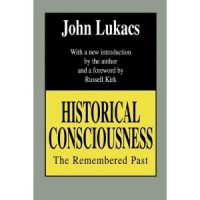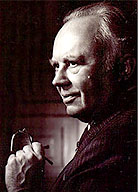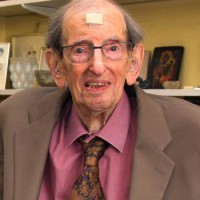History Resurgent, by Brainard Cheney.
“You couldn’t be more right,” is the warm affirmation of an amiable friend of mine that I would like to apply to this book. Dr. Lukacs here has achieved an informed, discriminating, and balanced assessment of our waggambraus times and a recognition of a potential for our salvation. Too, he has provided responsible and penetrating criticism of the present “Interregnum.” And he has presented or “re-presented” sound ground for his perspective.
Dr. Lukacs examines the passing of the Modern Age, with its disastrous scientific worldview, to find that it leaves behind “monstrous institutions of scientific technology . . . governed by puny men,” and our grim realization that “for the first time the end of the world is in sight.”
To be sure, he is not the first man to sight the end of the world, nor to sound an alarm. His work is rather a diagnosis of causes and a consideration of the terms of avoidance. The Modern Age, our Pandora’s box, produced two “achievements of the modern European mind”: the scientific thought and the historic thought. And it is in recent modification of scientific “Absolutism” by the historical form of thought that hope now resides. To put it more exactly: “This movement from the physics of historical force to the history of physics, marks, in itself, the developing historicity of our consciousness.” Mr. Lukacs finds that “the elements of a potential harmony between historical and scientific thought are already here. It is only because of the extraordinary intellectual confusion of our times that the existence of this harmony has gone either unrecognized or that it has been rather willfully obscured by certain vested interests of the mind.”
Read the complete article in The University Bookman
A summary of the Conservative Mind
Aaron McLeod, a former Wilbur Fellow, has written an excellent Summary of Russell Kirk’s The Conservative Mind, the first number in the Alabama Policy Institute’s “Essential Readings for the Modern Conservative” series. Aaron takes 70 pages to explain the themes and approach of Kirk’s 509-page book, and we commend him for his fine work and recommend this free PDF e-book to all who would like to become acquainted with Kirk’s thought and the conservative intellectual tradition. It will whet your appetite.
Published by The Russell Kirk Center
Eric Hobsbawm, 1917-2012, by Roger Kimball
In the annals of moral idiocy, the Marxist British historian Eric Hobsbawm, who died yesterday at 95, will ever enjoy a conspicuous place. A gifted and prolific writer, the Egyptian-born Hobsbawm was utterly absorbed by the ideology that fired his youthful dreams of utopia. How he must have savored the fact that he was born in 1917, the year of the Bolshevist revolution in Russia which ushered in so much poverty, misery, terror, and freedom-blighting totalitarian oppression. “The dream of the October Revolution is still there somewhere inside me,” Hobsbawm wrote in his memoir Interesting Times in 2002, “I have abandoned, nay, rejected it, but it has not been obliterated. To this day, I notice myself treating the memory and tradition of the USSR with an indulgence and tenderness.”
Indeed. Hobsbawm was adulated by an academic establishment inured to celebrating partisans of totalitarian regimes so long as they are identifiably left-wing totalitarian regimes. Although he claimed to have been victim of a “weaker McCarthyism” that retard advancement of leftists in the UK, Hobsbawm enjoyed a stellar career replete with official honors, preferments, and perquisites. He was showered with honors and academic appointments at home and abroad. His books won all manner of awards. In 1998 he was appointed to the Order of the Companions of Honor. But the central fact about Hobsbawm, as about so many doctrinaire leftists, was his willingness to barter real people for imaginary social progress. If he “abandoned, nay rejected” the “dream” of the October Revolution, he never abandoned its animating core: an almost reflexive willingness to sacrifice innocent lives for the sake of a spurious ideal.
The philosopher David Stove once identified “bloodthirstyness” as the motivating force of Communism and its offshoots. Scratch a socialist and you discover a fondness for the gulag. This describes Hobsbawm to a T. In 1994, the venerable historian discussed the former Soviet Union with a television interviewer. What Hobsbawm’s position comes down to, the interviewer suggested, “is saying that had the radiant tomorrow actually been created, the loss of fifteen, twenty million people might have been justified?” Hobsbawm: “Yes.”


